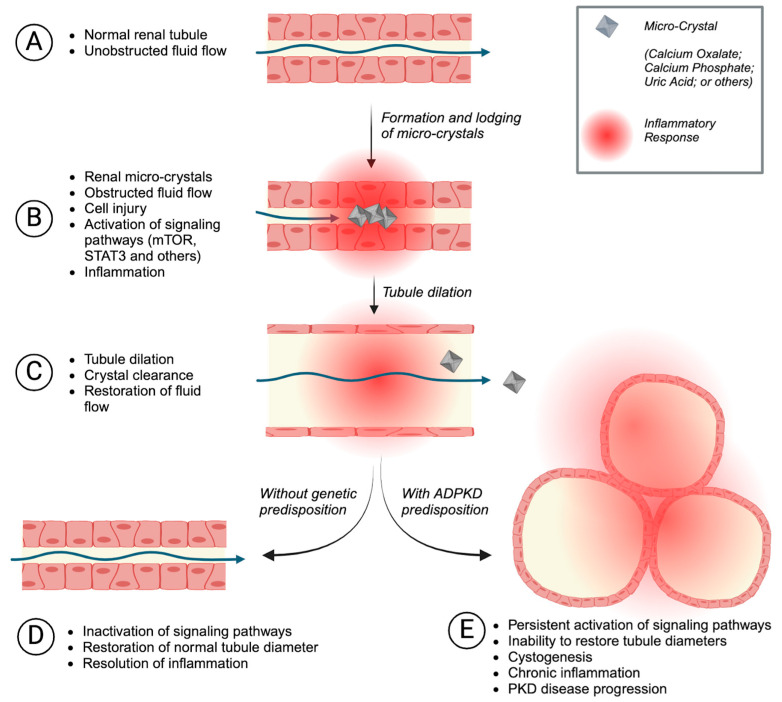Figure 3.
Renal crystal-mediated injury, inflammation, tubule dilation, and ADPKD progression. A normal renal tubule with unobstructed fluid flow (A). Diet, dehydration, or medication-induced deposition of microcrystals (most commonly consisting of oxalate, uric acid, or phosphate) causes obstruction of renal fluid flow, renal injury, and inflammation (B). The renal tubule dilates to allow for crystal clearance and to re-establish normal fluid flow (C). Without any genetic predisposition, temporary microcrystal injury, inflammation, and tubule dilation are resolved (D). In ADPKD patients, crystal-mediated inflammation and injury can initiate or accelerate renal cyst growth and disease progression (E).

